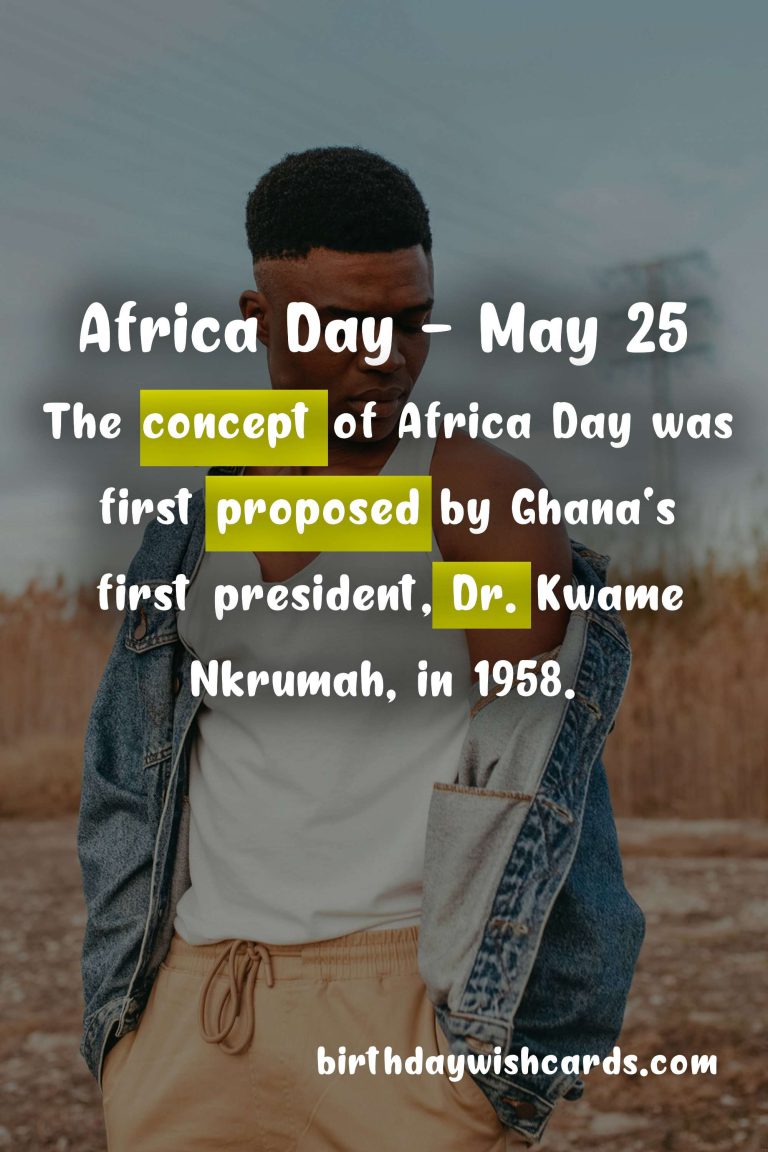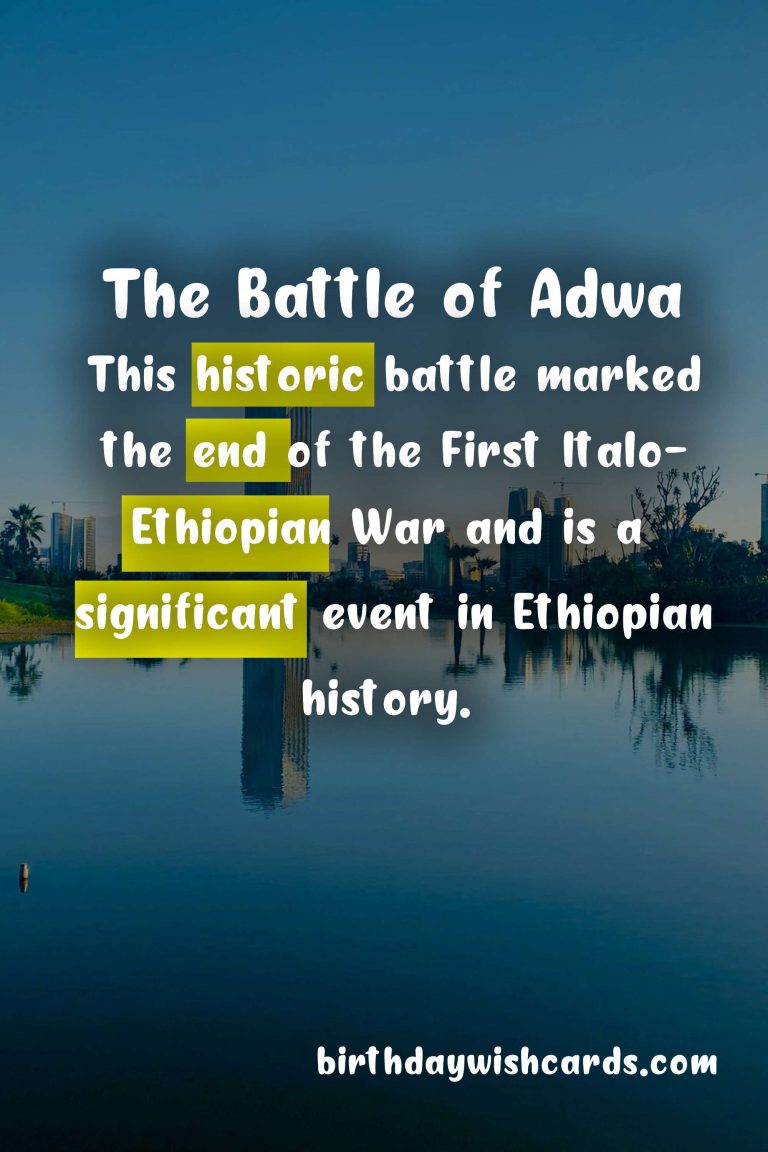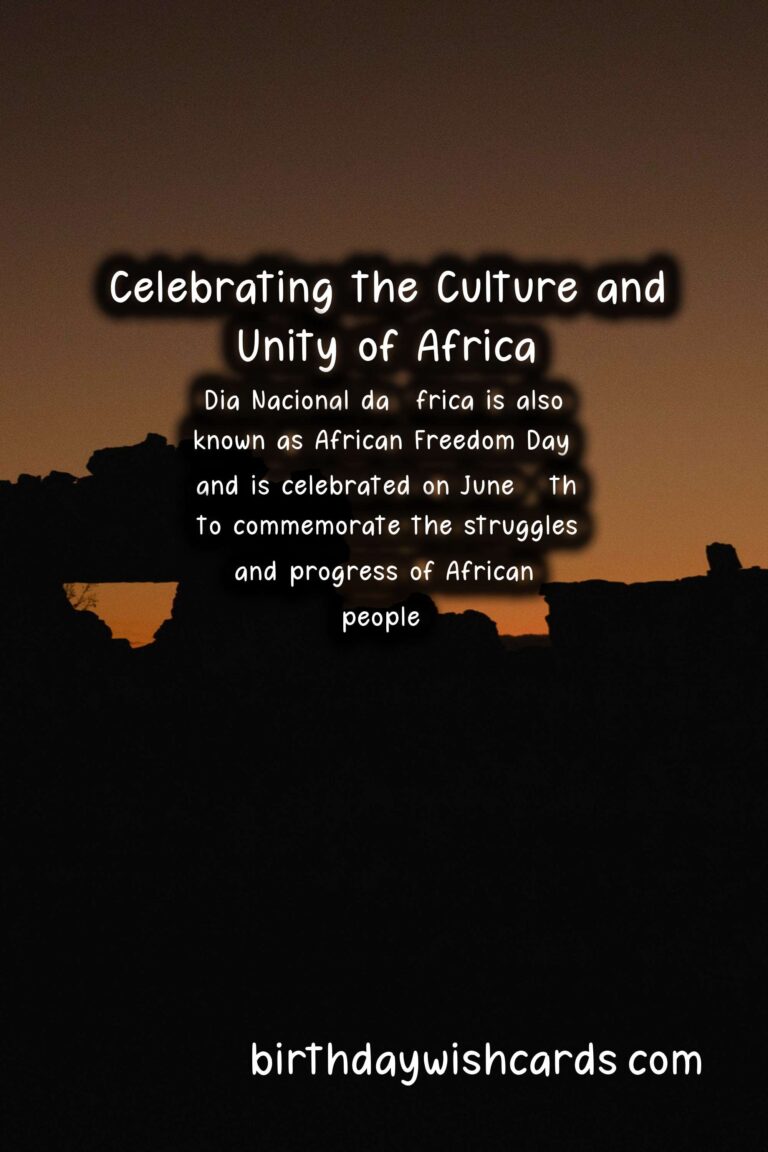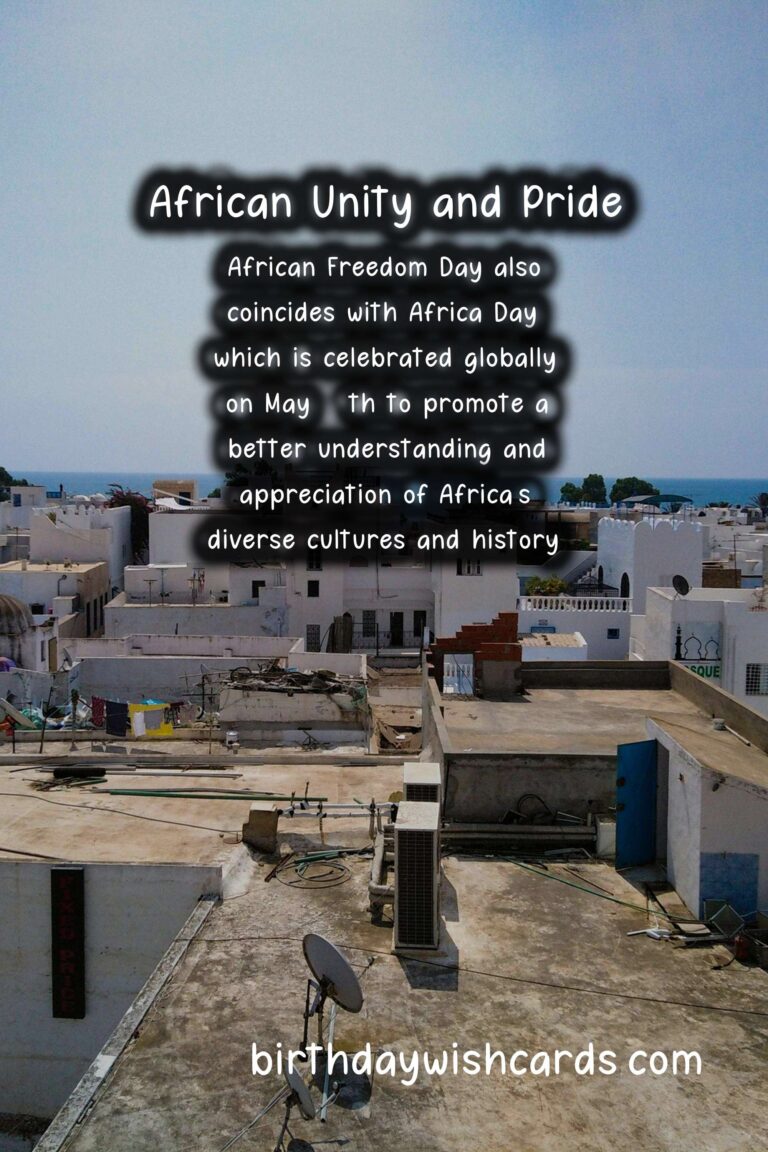African Liberation Day: Celebrating the Continued Struggle for Freedom
African Liberation Day: Celebrating the Continued Struggle for Freedom
On May 25, people all over the world come together to commemorate African Liberation Day. This important day, also known as Africa Day, marks the ongoing fight for liberation, self-determination, and unity among African nations and people.
The History of African Liberation Day
African Liberation Day was first celebrated on May 25, 1963 in Addis Ababa, Ethiopia. It was the first meeting of the Organization of African Unity (OAU), which brought together 32 independent African states with the goal of promoting unity and solidarity among African nations. At the time, the majority of African countries had recently gained independence from colonial rule and were facing new challenges in establishing themselves as independent nations.
The founders of African Liberation Day saw it as an opportunity to raise awareness about the struggles of African people and to promote Pan-Africanism – the belief that all people of African descent share a common history, culture, and destiny. The date was chosen to honor the anniversary of the first Pan-African conference held in 1900 in London, which brought together influential Black intellectuals and activists to discuss the future of Africa and its diaspora.
Why We Still Celebrate African Liberation Day Today
Despite the progress made since the first African Liberation Day, the struggle for freedom and equality in Africa and its diaspora continues. The legacy of colonialism and imperialism still impacts many African countries, and the effects of slavery and racism are still felt by people of African descent around the world. African Liberation Day serves as a reminder of the ongoing fight for justice and equality.
It is also a day to celebrate the achievements and contributions of people of African descent. Throughout history, African people have made significant cultural, political, and economic contributions to the world. African Liberation Day is an opportunity to recognize and honor these contributions.
The Significance of African Unity
One of the main goals of African Liberation Day is to promote unity among African nations and people. The OAU, now known as the African Union, has made strides towards this goal by facilitating cooperation and collaboration between African countries.
However, unity among African nations is still a work in progress. Conflicts and divisions based on borders, ethnicities, and languages are ongoing challenges. These issues can often be traced back to the legacy of colonialism, which intentionally created divisions among different groups in order to maintain control over African resources.
The Role of African Liberation Movements
African Liberation Day is also a time to recognize and honor the important work of African liberation movements. These movements, which have emerged across the globe, aim to end systemic oppression and achieve freedom for African people.
Through protests, demonstrations, and other forms of activism, these movements have brought attention to cultural, economic, and political issues affecting African communities. They have also contributed to the growing movement for Pan-Africanism and African unity.
African Liberation Day is a time to acknowledge the sacrifices and accomplishments of these movements, and to continue supporting their fight for justice and freedom.
Celebrating African Liberation Day Today
Today, African Liberation Day is celebrated in many ways around the world. In African countries, it often involves large-scale events such as parades, concerts, and cultural festivals. In other parts of the world, people may gather for community events, participate in political discussions, or simply take time to reflect on the significance of the day.
Sentences Related to African Liberation Day
African Liberation Day is celebrated every year on May 25.
The first African Liberation Day was celebrated in 1963 in Ethiopia.
The date was chosen to honor the anniversary of the first Pan-African conference held in 1900 in London.
African Liberation Day raises awareness about the ongoing struggles faced by African people.
It also celebrates the achievements and contributions of people of African descent.
African Liberation Day promotes unity among African nations and people.
There are many ongoing challenges to African unity, including conflict based on colonial borders and divisions.
African liberation movements play a vital role in the ongoing struggle for justice and equality.
African Liberation Day is a time to celebrate and honor these movements.
The day is celebrated in various ways around the world, including large-scale events and community gatherings.
African Liberation Day is celebrated every year on May 25.
The first African Liberation Day was celebrated in 1963 in Ethiopia.
The date was chosen to honor the anniversary of the first Pan-African conference held in 1900 in London.
African Liberation Day raises awareness about the ongoing struggles faced by African people.
It also celebrates the achievements and contributions of people of African descent.
African Liberation Day promotes unity among African nations and people.
There are many ongoing challenges to African unity, including conflict based on colonial borders and divisions.
African liberation movements play a vital role in the ongoing struggle for justice and equality.
African Liberation Day is a time to celebrate and honor these movements.
The day is celebrated in various ways around the world, including large-scale events and community gatherings.
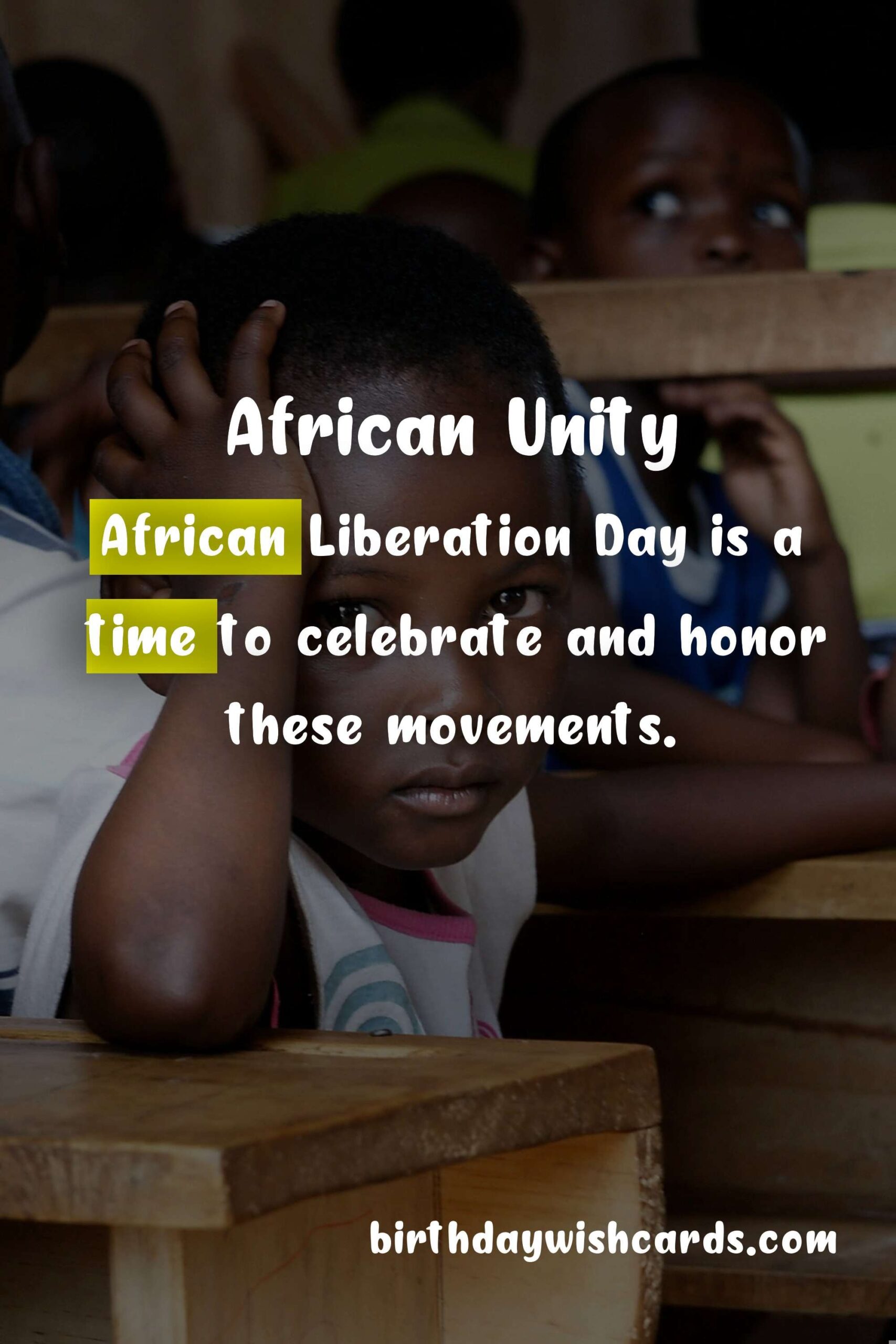

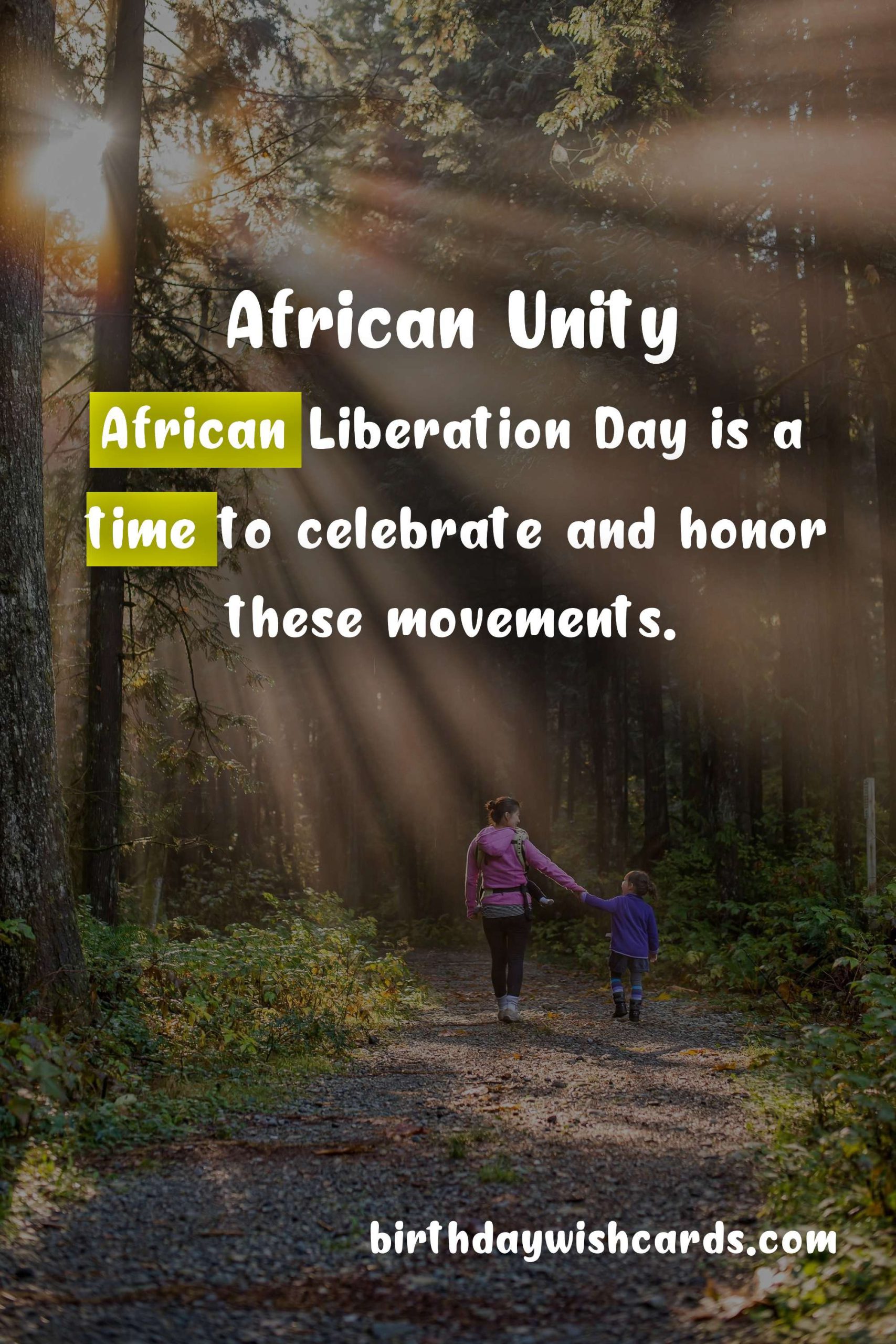

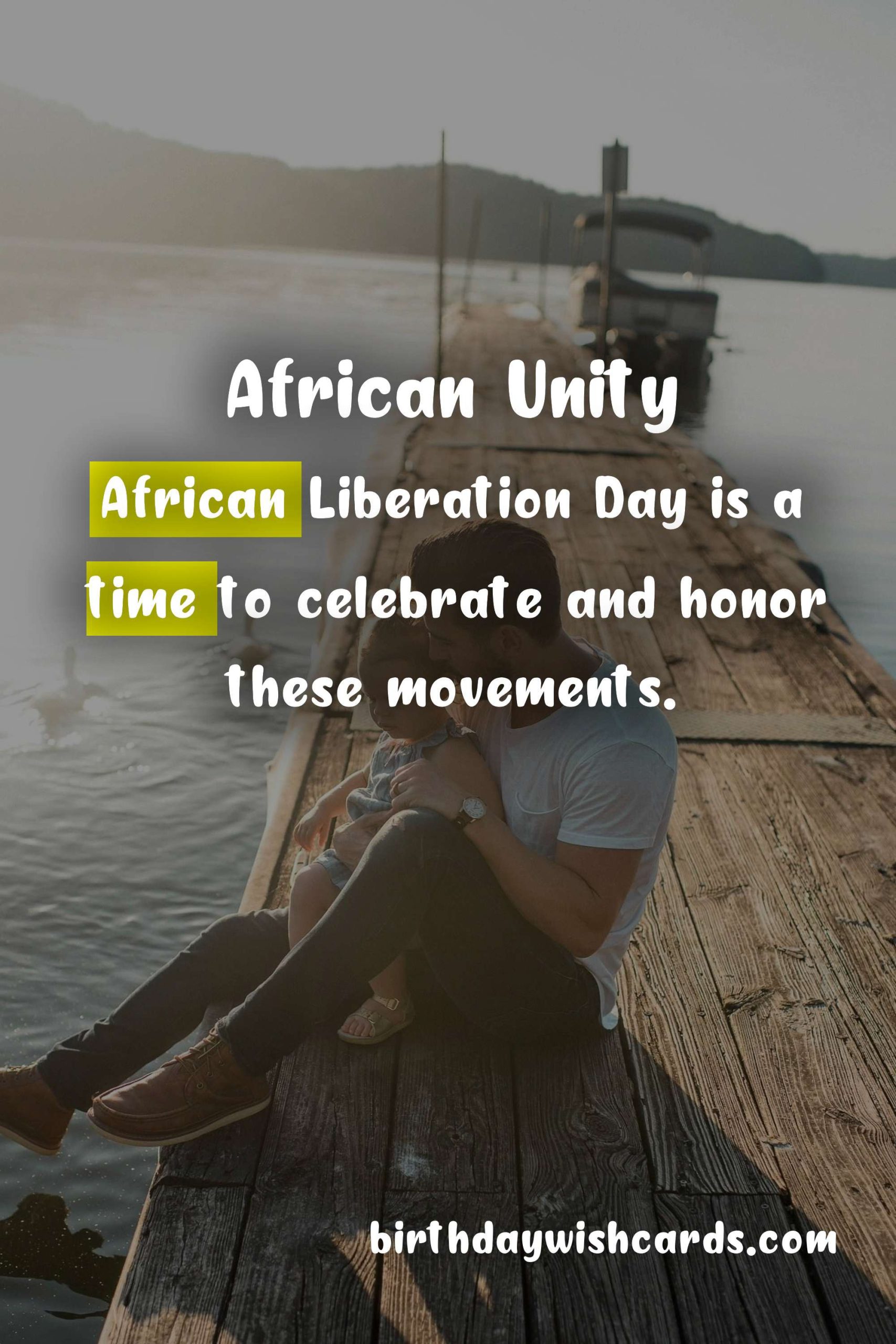
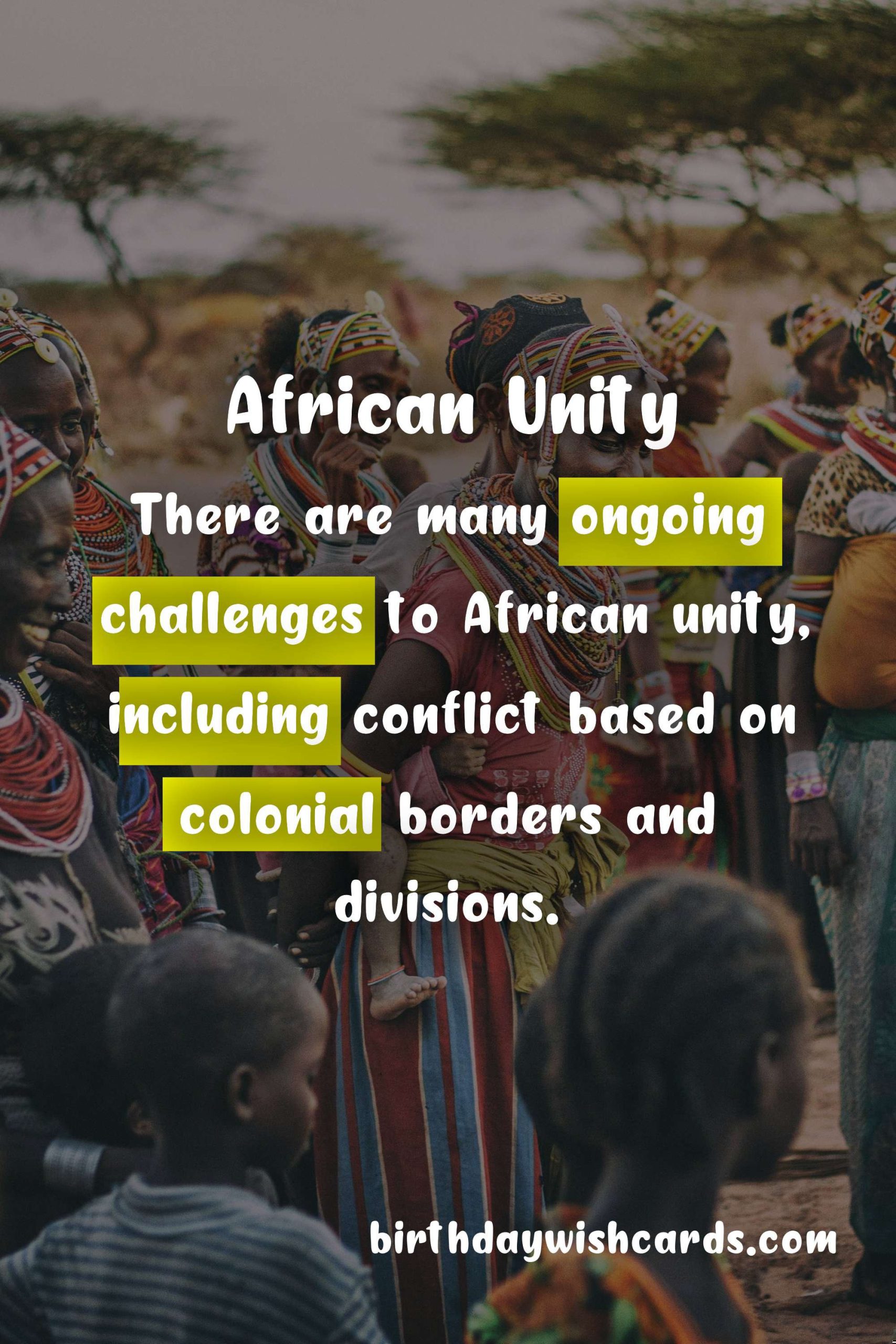
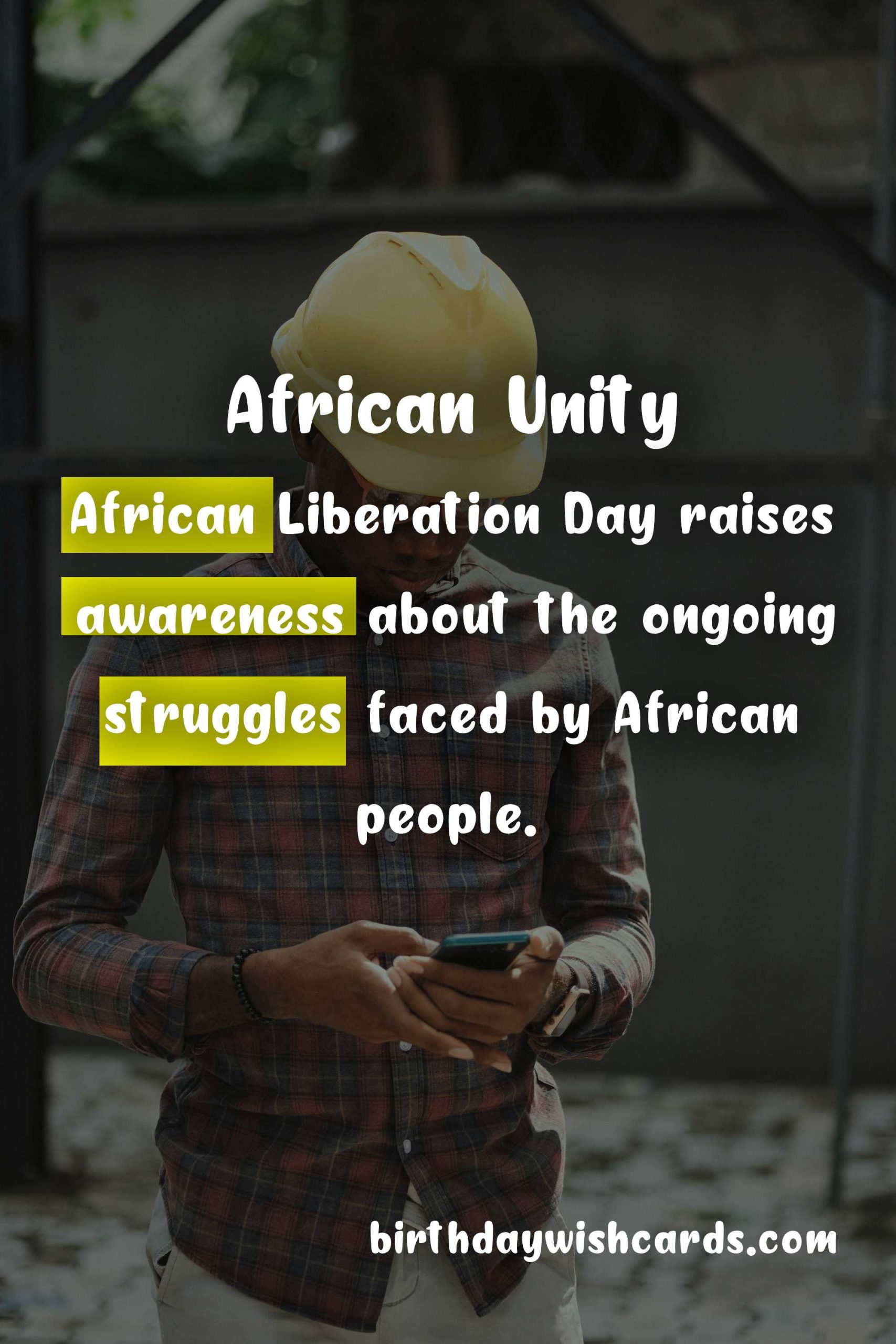
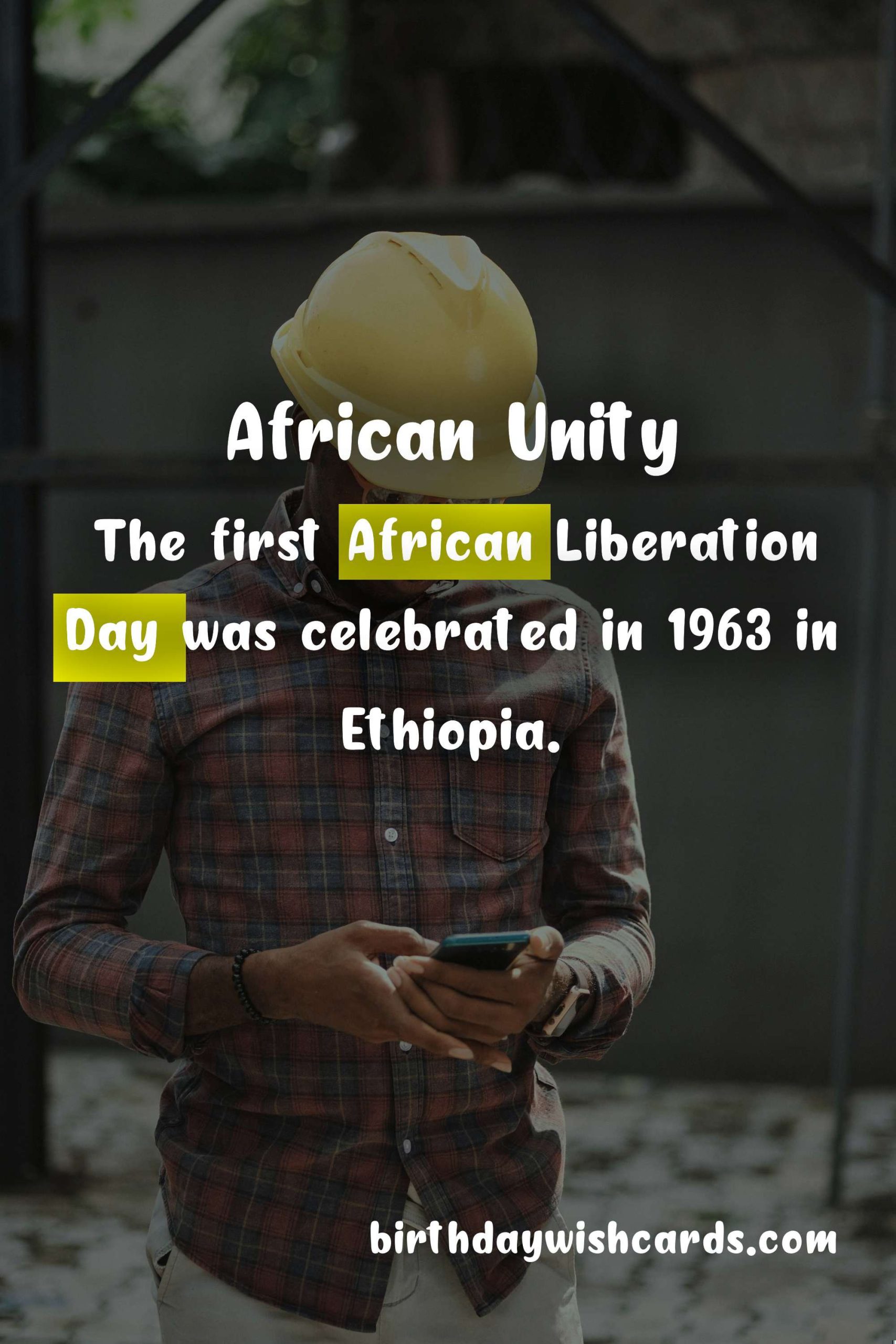

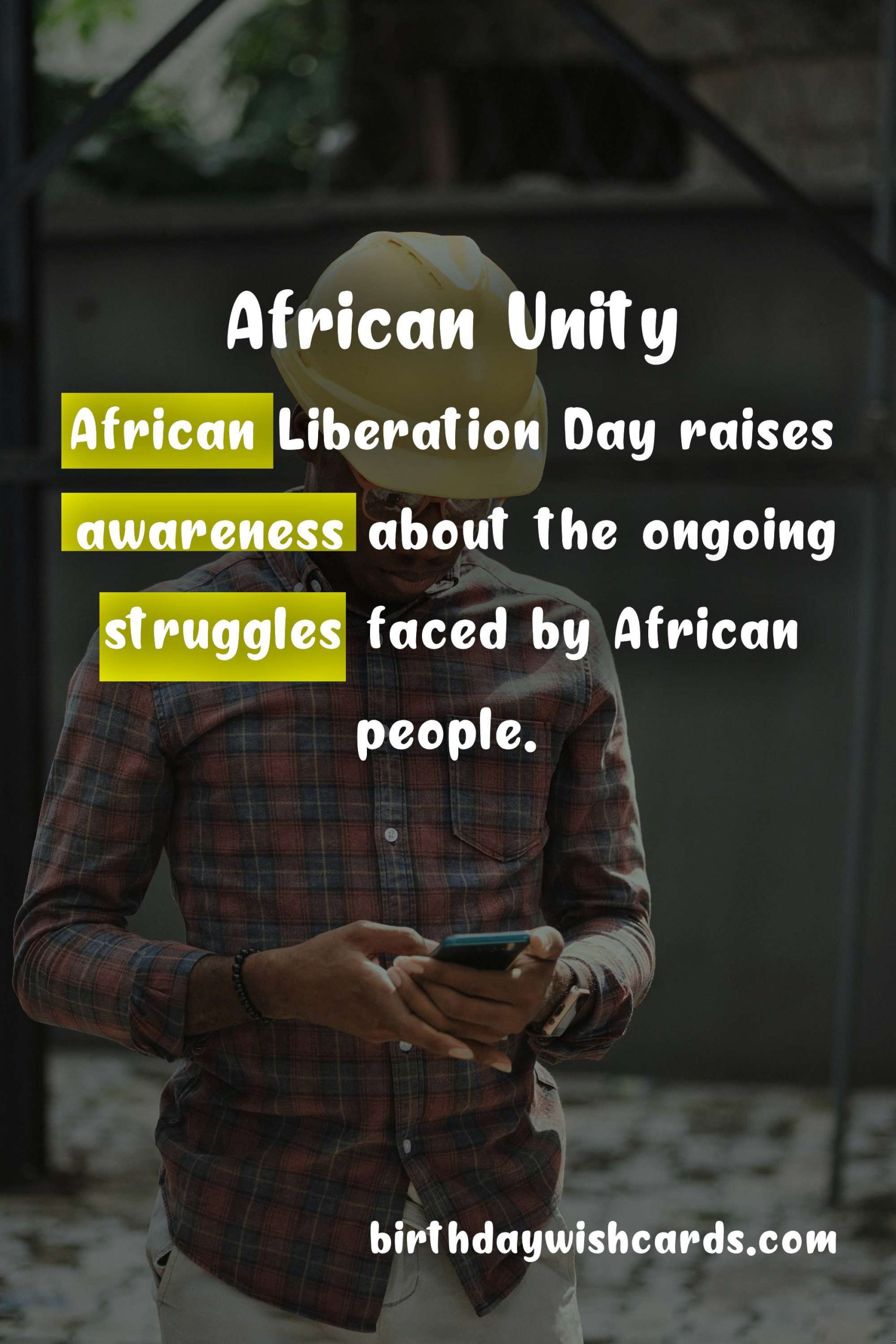
#AfricanLiberationDay #PanAfricanism #AfricanUnity #LiberationMovements


